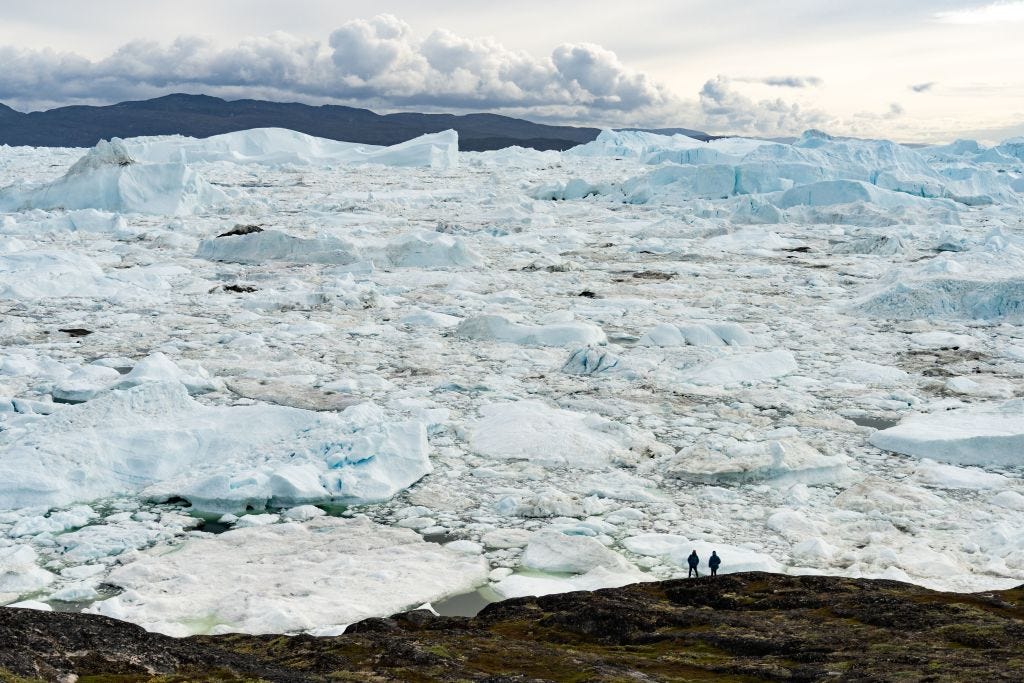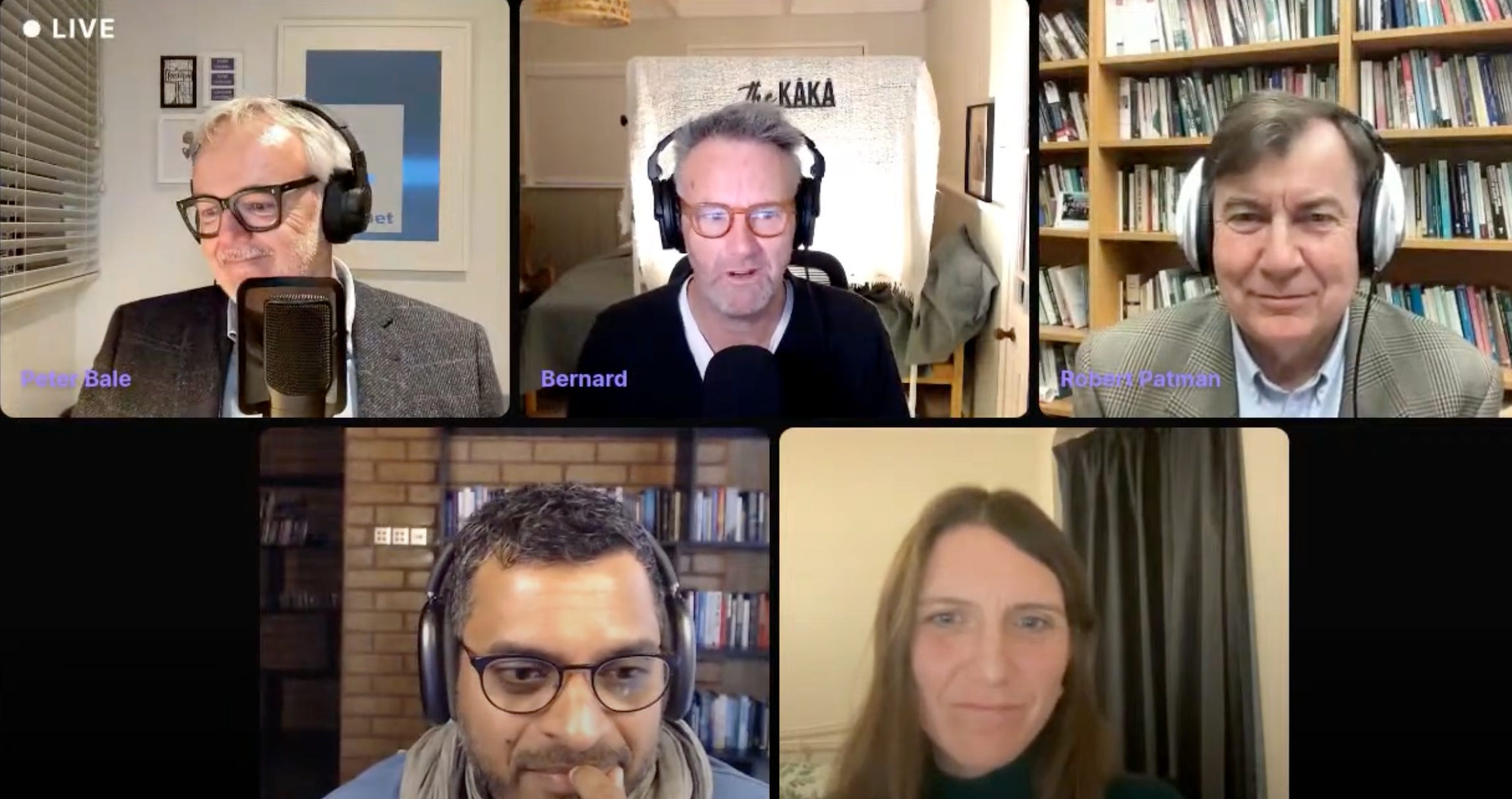Weekly Climate Wrap: Olympians broil as European temps continue to soar
Description
TL;DR: Here’s the top six news items of note in climate news for Aotearoa-NZ this week, and a discussion above between Bernard Hickey and The Kākā’s climate correspondent Cathrine Dyer:
* The WHO reports a 30% increase in heat-related deaths worldwide over the past two decades with numbers set to swell (as we all swelter).
* Wait and see, says Zeke Hausfather: Climate scientists are holding out for as long as possible in the hope that global surface temperatures will self-correct to a level closer to their model paths in August.
* A story about how oil companies sold the US on a fake climate change solution, simultaneously swindling billions of dollars of taxpayer money to support the grift, is gaining ground since hearings in the US Senate wound down last month.
* As support for ‘voluntary off-setting’ hits the skids, a replacement concept is now emerging to help corporates achieve their targets, even when they fail to sufficiently reduce their own emissions. Is it real, or just another way to greenwash?
* The call goes out to make your voice heard, with submissions on the government’s Emissions Reduction Plan (ERP) set to close on 17 August.
* The Government announced it was looking to import LNG to generate elecricity after a surge in wholesale prices that is forcing factories to close.
(See more detail and analysis below, and in the video and podcast above. Cathrine Dyer’s journalism on climate and the environment is available free to all paying and non-paying subscribers to The Kākā and the public. It is made possible by subscribers signing up to the paid tier to ensure this sort of public interest journalism is fully available in public to read, listen to and share. Cathrine wrote the wrap. Bernard edited it. Lynn copy-edited and illustrated it.)
1. WHO warns of ongoing surge in heat-related deaths
As athletes and spectators alike suffered through sauna-like conditions at the Paris Olympics, the UN has pointed out that heat-stress is the leading cause of climate-related deaths in the region. According to a World Health Organisation (WHO) report, there has been a 30% increase in heat-related deaths worldwide over the past two decades.
A staggering 175,000 people die from heat-related causes every year in Europe and that figure is set to soar in line with our steadily warming planet. That’s the warning from the UN World Health Organization (WHO), which said on Friday that European countries are seeing temperatures rise at around twice the global average.
[...] That message echoes the Call to Action on Extreme Heat by UN Secretary-General António Guterres, who insisted that Earth “is becoming hotter and more dangerous for everyone, everywhere”.
In some places around the world, the climate crisis is already driving temperatures up to unbearable levels, WHO noted. Estimates show that globally, approximately 489,000 heat-related deaths occurred each year between 2000 and 2019, with the European Region accounting for 36 per cent or on average more than 175,000 lives every year
Mr. Guterres’s comments came in the week that saw the three warmest days recorded on Earth in recent history, according to one of the datasets that the UN World Meteorological Organization (WMO) uses to monitor the climate.
Source: UN News
2. ‘We’ll know by August’
Meantime, climate scientist Zeke Hausfather pushes back against the dawning realisation that global temperatures have already established a new normal that is 1.5˚C above the pre-industrial level, suggesting we ‘wait and see’ what August brings.
Temperatures in the southern hemisphere (the blue line in the chart below) were pushed up in the last two weeks of July by a warming spike in Antarctica which soared nearly 30˚C above normal.
Daily global and hemispheric temperatures in the NCEP GFS reanalysis product, including a 7-day forecast. Anomalies shown relative to a 1981-2010 baseline. Sourced from Karsten Haustein’s climate tracking site.
Hausfather suggests that this anomalous situation in Antarctica, which is generally subject to high variability, is likely to disappear, leaving August temperatures to drop slightly below last year’s.
Earlier this year NASA’s Gavin Schmidt and I separately wrote that the evolution of global temperatures in 2024 would be important to tell us if the “gobsmacking” conditions we saw in the latter half of 2023 represented a new persistent condition for the climate or more of a temporary phenomenon.
Gavin suggested that we would have a better sense by August if conditions were stabilizing or the climate was heading into “uncharted territory”.
With August almost upon us we remain in something of a liminal space. Both June and July were notably warmer than I expected earlier in the year (coming in 0.4C and 0.3C respectively above the last big El Nino year of 2016). At the same time, we have moved out of record territory, and we still expect some additional cooling influence from fading El Nino conditions and potential La Nina development.
So I think we will still have to wait and see, though if the spike in temperatures over the past few weeks persists to push August 2024 to set a new record it would be a worrying sign.
Source: The Climate Brink
The problem is that temperatures in August last year were already 1.5˚C above the pre-industrial average according to the EU’s Copernicus programme.
A new record would be really alarming, but one would think that anything near to last year’s “gobsmacking” conditions would still represent a worrying ‘persistence’. The requirement for a ‘new record’ to spark concern sounds like the goalposts are being shifted.
3. Eyes on fossil fuel companies’ cynical ‘solutions’ ploy
Award-winning investigative journalist, Amy Westervelt’s piece, supported by the Pulitzer Centre and published in Vox, as well as her own site Drilled at the end of July is gaining traction.
The report shows how fossil-fuel companies have been heavily marketing solutions, such as Carbon Capture and Storage (CCS) and biofuels, that they don’t really believe in themselves.
Her reporting has been closely following revelations from a three-year US House and Senate Democrat investigation into the fossil fuel industry’s role in climate disinformation.
The Intergovernmental Panel on Climate Change (IPCC) has said carbon capture might be necessary to reduce the emissions of certain “hard to abate” sectors like steel, concrete, and some chemical manufacturing, but noted that in the best-case scenario, with carbon capture technology working flawlessly and deployed at large scale, it could only account for a little over 2 percent of global carbon emissions reductions by 2030.
That hasn’t stopped major oil companies from claiming</
























